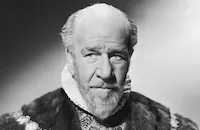The Flame Within

Brief Synopsis
Cast & Crew
Edmund Goulding
Ann Harding
Herbert Marshall
Maureen O'sullivan
Louis Hayward
Henry Stephenson
Film Details
Technical Specs

Synopsis
Psychiatrist Mary White and physicians Gordon Phillips and Jock Frazier mingle with the elite citizens of New York at the city's annual Hospital Circus Ball. There, Gordon, who is in love with Mary, proposes marriage to her, but she rejects him. Though Mary is in love with Gordon, she tells him that she is unable to take a marriage oath because she is committed to her career. When Gordon learns that one of his patients, the wealthy Englishwoman Lillian Belton, has just attempted suicide, he leaves the ball to attend to her. While Lillian recovers from a drug overdose, Gordon discovers that prior to her suicide attempt she was depressed over her broken relationship with Jack Kerry, an alcoholic Englishman. Realizing that Lillian's problem must be treated delicately, Gordon suggests that she meet with Mary. Lillian takes Gordon's advice, but when she places a call to Jack from Mary's office, she learns that he has gone out drinking and attempts to jump out of the window, but is stopped by Mary. The distraught Lillian admits that she is in love with Jack but that he does not care for her. Believing that she can help Lillian by counseling Jack and treating his alcoholism, Mary asks her to bring him in for treatment. Jack's drinking problem becomes immediately apparent to Mary when he arrives at her home and asks for a drink to rid himself of a hangover. During their meeting, Mary is called away unexpectedly and forced to cancel the remainder of her session with Jack. Later, when Mary returns home, she learns that Jack came back and is alseep in one of her rooms. Mary allows him to catch up on his much-needed sleep, and Gordon takes him home the following day. Concerned about Mary's involvement with a case as tough as Jack's, Gordon suggests that she turn him over to Dr. Salter, a specialist in alcoholism. Four months after Jack is sent to Brownlow's Physical Culture Camp to begin his rehabilitation, Gordon and Mary visit him, but are disappointed when they discover that he is still drinking heavily and prone to violent outbursts. Eight months pass, and Jack, showing definite signs of recovery, demonstrates for Mary and Gordon his new invention: an air chair for passenger airplanes. Following Jack's release from the rehabilitation center, he and Lillian make plans to marry and return to England. Soon after they are married, however, the newlyweds become embroiled in an argument when Lillian discovers that Jack has fallen in love with Mary, and that Mary has developed strong feelings for him as well. Furious, Lillian accuses Mary of seducing her husband. Mary later tells Jack that he has become as dependent on her as Lillian has become on him. All ends happily though when Jack realizes his obligation to remain true to his marriage commitment, and when Mary finally accepts Gordon's marriage proposal.

Director

Edmund Goulding
Cast

Ann Harding

Herbert Marshall

Maureen O'sullivan

Louis Hayward

Henry Stephenson
Margaret Seddon
George Russell

Eily Malyon
Claudelle Kaye
Sam Hayes
Crew
Jack Ackerman
Victor Baravalle
Laura Hope Crews
Cedric Gibbons
Edmund Goulding
Edmund Goulding
William A. Horning
James Wong Howe
Stan Hutchinson
Frank Huzar
King Kaufman
Paul "shug" Keeler
Jerome Kern
A. Kime
George Lee
A. Picciano
Lloyd Ryan
Blanche Sewell
Douglas Shearer
Dolly Tree
Edwin B. Willis
Dolph Zimmer

Film Details
Technical Specs

Articles
The Flame Within -
By Violet LeVoit

The Flame Within -
Quotes
Trivia
Notes
According to a March 24, 1935 New York Times news item, Merle Oberon was originally set for the part that eventually went to Maureen O'Sullivan. Hollywood Reporter pre-production news items indicate that Mady Christians, Irene Dunne and Henry Hull were announced for leading roles at various times. Hollywood Reporter production charts and news items list actors George Andre Beranger, Bobby Watson, Arthur Byron, George Irving, J. P. McGowan, Earl Eby, Inez Palange and Jim Farley in the cast, but their appearance in the released film has not been confirmed. A December 1934 Hollywood Reporter news item noted that actress Helen Gahagan was "approached" for a part, but she did not appear in the film. Another Hollywood Reporter news item notes that M-G-M got past the censors a scene in which a scantily clad "Lady Godiva" enters a dress ball by having her dressed in cellophane. The file on the film in the MPAA/PCA Collection at the AMPAS Library contains a letter sent from the PCA to M-G-M on March 11, 1935, in which the PCA suggested that the studio omit the expression, "He's a little effeminate," and warned against any "indication of effiminacy in the portrayal of Ramos." In addition, the PCA noted that some censor boards would likely delete any reference to "kidneys," explaining that "it [the organ] seems to have some unpleasant connotation in the public mind."
















